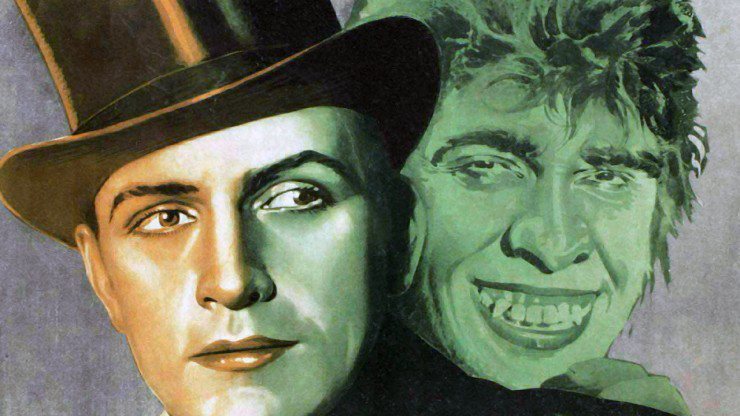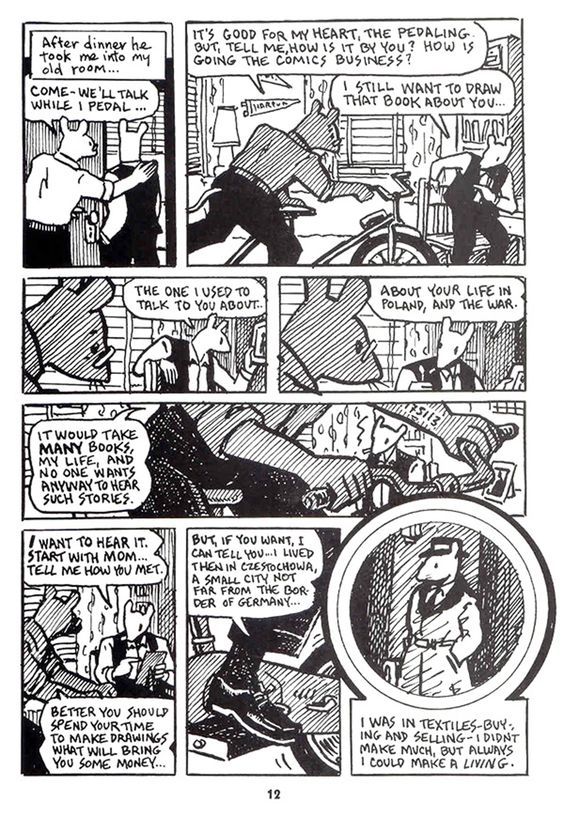
… but truly two.’ Robert Louis Stevenson, The Strange Case of Dr Jekyll and Mr Hyde.
PTS read through: Comedy of Errors, Act IV
In 2018, the notion of what it means to be a ‘man’ feels ever more opaque, with behaviours and attitudes being scrutinised as never before, perhaps. As a gender, we sometimes appear confused about the path we ought to take to find a satisfying and yet socially acceptable direction or self-definition.
Maybe it was ever thus.
In yesterday’s post on Macbeth I touched upon the fragility of our hero’s notions of himself when his masculinity was challenged by his wife. Macbeth is largely a play about what it means to be a man, but that’s way down the line in terms of my reading schedule. Reading Act IV of Comedy of Errors felt like one of those non-comic interludes towards the end of plays like Much Ado About Nothing, and instead of laughing, I found myself thinking about what Antipholus (E) implies a ‘man’ should be. It’s not an attractive picture …
In introducing the play, Kent Cartwright tells us:
Identity derives from social relations
… and I began to apply this idea to character as well as identity. During the course of the play, one of the things that began to interest me was whether I could distinguish between the twins. I’d done it with the servants, but what about the masters?
Antipholus (E) is an interesting character because he’s not a lord, or courtier. There’s no expectation on him to be accomplished in Petrarchan sonnetry, or languages, or other gentlemanly arts. But, as one of the sons of Egeon, and it seems the more settled, successful one (let’s not forget that we find out later that his mother is an abbess), we can expect a solid, decent human. Right?
Interestingly, what we get instead in Act IV is a Jekyll and Hyde individual, whose public and private faces are remarkably different.
Skipping forward slightly to the very beginning of Act V, we see the general approval of Antipholus extolled by Angelo:
‘Of very reverend reputation, sir,
Of credit infinite, highly beloved,
Second to none that lives here in the city;
His word might bear my wealth at any time.’ (V.i.5-8)
We don’t have to accept the goldsmith’s word for it – the hapless Syracusean Antipholus describes the bewildering treatment he gets as he wanders the town in the following terms:
There’s not a man I meet but doth salute me
As if I were their well-acquainted friend,
And everyone doth call me by my name.
Some tender money to me; some invite me;
Some other give me thanks for kindnesses’. (IV.iii.1-5)
So far, so good. But what does the domestic face behind the public mask look like?
Remember that having been thwarted in his return home for dinner, Antipholus (E) resolved to give the golden chain to his mistress? He has a different kind of gift in mind for Adriana now:
‘buy a rope’s end. That I will bestow
Among my wife and her confederates.’ (IV.i.16-17)
 Ouch. As well as the literal meaning of the ‘rope’s end’ (and the interesting Arden gloss of it’s sexual connotations), I can’t help adding my own sinister gloss, in the shape of a noose. A painful flogging might not be the only thing on his mind.
Ouch. As well as the literal meaning of the ‘rope’s end’ (and the interesting Arden gloss of it’s sexual connotations), I can’t help adding my own sinister gloss, in the shape of a noose. A painful flogging might not be the only thing on his mind.
Where the Syracusean Antipholus is confused by amiable – at least until confronted by the Courtesan – the Ephesian version is dour and aggressive when confronted by Angelo:
‘Good Lord! You use this dalliance to excuse
Your breach of promise to the Porpentine.
I should have chid you for not bringing it,
But, like a shrew, you first begin to brawl.’ (IV.48-51)
At this point, Kent Cartwright‘s editorial annotations begins to remind me of my old sixth form English teacher from 30-odd years ago: Mrs Rees. She was determined to find the innuendo in everything we read, which I always suspected as a plot to keep us interested in EM Forster. If my KS5 students think I’m bad, and they do, they should have heard her in action! Still, you can smell the misogyny in this outburst, emasculating Angelo with ‘dalliance’, ‘breach of promise’ and ‘shrew’. And as I’ve already noted from his treatment of the Courtesan, Antipholus (S) is absolutely NOT interested in loose women.
At some stage, I need to watch parts of Act IV, to see if I can find them funny. On the page, they remind me of the animal-like brutality of Hyde in his murder of the politician, Sir Danvers Carew. Presented with that rope’s end in scene iv, Antipholus (E) beats his servant twice in the space of half a dozen lines, cursing him – his companion since birth – as a ‘whoreson’ and prompting a bitter and heartfelt discourse on the nature of his mastership:
‘I have served him from the hour of my nativity to this instant and have nothing at his hands for my service but blows. When I am cold, he heats me with beating; when I am warm, he cools me with beating. I am waked with it when I sleep, raised with it when I sit, driven out of doors with it when I go from home, welcomed home with it when I return.’ (IV.iv.30)
Actually, I’d lie if I said this passage failed to raise a tiny smile, but it’s a grim one at the complaint’s delivery, rather than one of approval – there’s no slapstick here for me.
I began to suspect that I’d given Adriana short shrift earlier in the play, suggesting that she’d simply surrendered any sense of agency (and therefore blame) when it came to her unhappy marriage:
That’s not my fault: he’s master of my state.
What ruins are in me that can be found
By him not ruined? Then is he the ground
Of my defeatures. (II.i.94-97)
That was before I got to know her husband better … when she arrives on stage (with, incidentally, the Courtesan) it seems to pull the pin out of the grenade. She’s accused of having suborned the goldsmith into arresting Antipholus, and labelled ‘harlot’, ‘minion’ and ‘strumpet’. Oh, the irony, given he has been consorting with a prostitute and promised his wife’s golden chain to her. Already having told us that the rope’s end is coming Adriana’s way, he declares:
‘Dissembling harlot, thou art false in all,
And art confederate with a damned pack
To make a loathsome, abject scorn of me;
But with these nails I’ll pluck out those false eyes
That would behold me in this shameful sport.
[Threatens Adriana]. (IV.iv.102-106)
No wonder she’s fretful. At this stage, she’s every right to complain, and is instead being offered violence. The las thing she should do is bail him out … let him rot, girl!
Of course, this negative interpretation of Antipholus (E) is very much a 21st-century one. Elizabethan society’s rules were different. The household presented a microcosm of a nation where obedience and loyalty to superiors was demanded and refusal to comply met with punitive and exemplary measures. It’s interesting to wonder to what extent Antipholus’s credit and reputation in Ephesus is founded on the quietude of his household, and the perception that he ran a tight ship. As I’ve often speculated about Lord Capulet, Shakespeare’s audience may well have included a number of men who saw nothing amiss in his treatment of his wife and servant. I often imagine well-to-do, middle-aged men in the audience nodding sombrely in approval when they see this kind of domestic tyranny on stage.
Antipholus (E) is an unpleasant caricature of the head of a Renaissance family, sure. But all successful caricatures have a large element of truth in them …
REFERENCES
Kent Cartwright (ed.), in William Shakespeare, The Comedy of Errors (Arden Third Edition), (Bloomsbury Publishing: London, 2017)
Share this:





